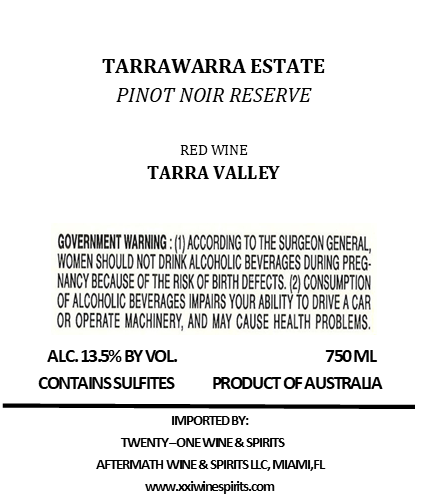Terroir of the Tamar Valley
The Tamar Valley has a unique environment influenced by its closeness to the Bass Strait and varied soil types. Cool sea breezes ease the summer heat and ensure chilly autumn nights, helping grapes ripen evenly and maintain natural acidity. Vineyards are placed on north or northeast-facing slopes to get the best sunlight and reduce frost risk, improving grape quality.
The valley's soils come mainly from basalt, sediment, and river terraces, which drain well and support deep-rooted vines for steady ripening. While irrigation is sometimes needed, most seasons require little extra water. This cool climate and balanced soils produce wines with clear fruit flavors and a special mineral taste. These factors contribute to the region's fame for making refined, terroir-driven wines.
Notable Wineries in the Tamar Valley
In Tasmania's Tamar Valley, a vibrant community of winemakers crafts exceptional wines that reflect the region's distinct terroir. Among the valley's noteworthy producers is Josef Chromy in Relbia, renowned for its exquisite Chardonnay, Pinot Noir, and sparkling wines, paired with a top-tier restaurant experience.
-
Tamar Ridge: Located in Kayena/Rosevears, famed for its reliable cool-climate wines and scenic river views from a modern cellar door.
-
Holm Oak: A family-owned gem in Rowella, excelling in Pinot Noir and aromatic whites.
-
Stoney Rise: Known for its boutique charm, this Gravelly Beach winery emphasizes the unique character of its Pinot Noir and Chardonnay.
-
Velo Wines: In Legana, this boutique winery focuses on purity of fruit and regional essence.
Sustainable Winemaking in the Tamar Valley
In Tasmania's Tamar Valley, sustainability is woven into the fabric of winemaking. Embracing the valley’s cool climate, local vineyards adopt eco-friendly practices, reducing the need for chemical interventions.
Many producers are committed to organic and biodynamic farming, enhancing biodiversity and soil health with cover crops and compost from grape waste. Integrated pest management is common, using natural predators and organic sprays only when necessary.
Water conservation is a priority, with drip irrigation systems in place to manage resources wisely. Energy efficiency is also on the rise, with a shift towards renewable sources and improved waste management through recycling and composting.
These sustainable practices not only protect the environment but also contribute to the production of wines that truly express the region’s unique terroir, ensuring the Tamar Valley remains a beacon of high-quality, responsible viticulture.
Wine Tourism in the Tamar Valley
Explore the Tamar Valley Wine Route, home to around 30 cellar doors from Legana to George Town. This picturesque trail offers a unique blend of vineyards, orchards, dairy farms, and historic towns.
Many wineries provide farm-to-table dining experiences, showcasing local produce alongside their wines. Visitors can enjoy leisurely vineyard walks, scenic river views, and cycling routes that link major wineries.
River cruises from Launceston offer another perspective of the valley's beauty. Seasonal events, including harvest festivals and exclusive tastings, add to the charm.
The valley promotes self-drive itineraries, allowing one to savor award-winning wines, local cuisine, and stunning landscapes at a relaxed pace. Launceston, with its easy access, serves as a perfect starting point for wine tours, making the Tamar Valley a must-visit for wine enthusiasts seeking a blend of nature, culture, and exceptional wines.







